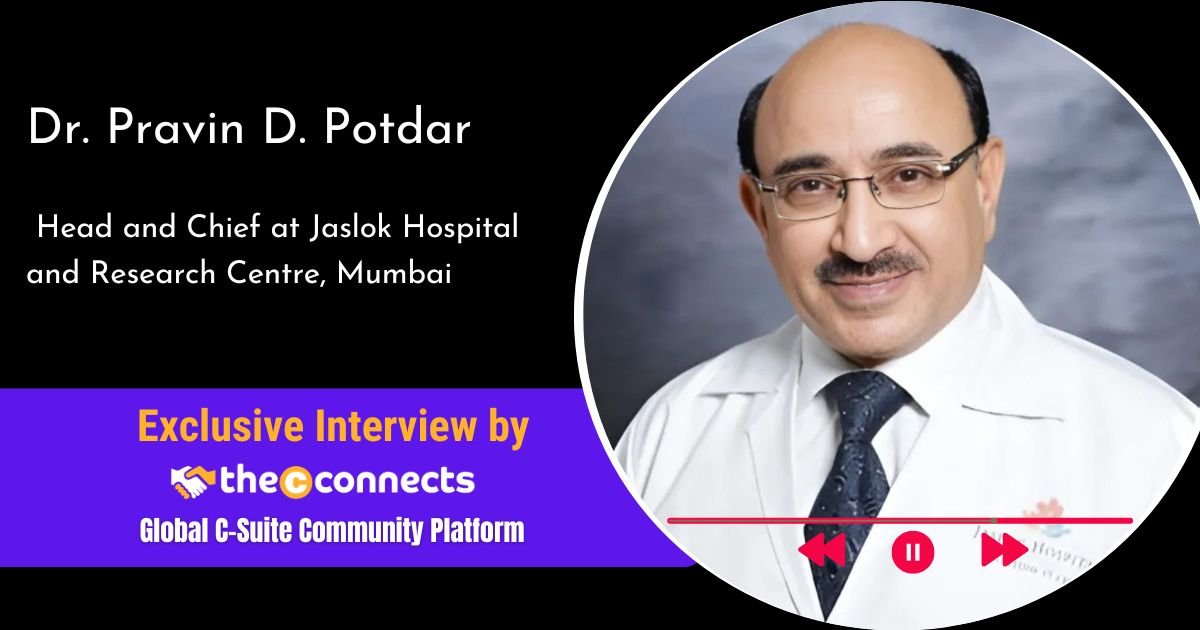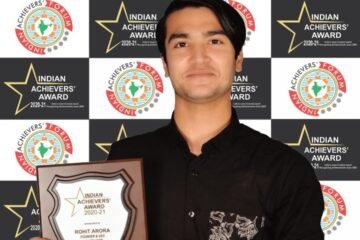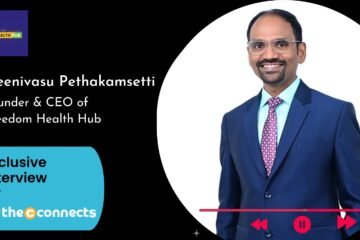TheCconnects: Dr. Pravin D. Potdar, it’s an honor to sit down with you. Your career in cancer research and molecular medicine spans over four decades. Could you share with our readers how your journey began and what led you to your impactful role at Jaslok Hospital?
Dr. Pravin D. Potdar: Thank you for having me. My journey started in the 1975s with a Diploma in Medical Laboratory Technology (DMLT) from Mumbai. I was always fascinated by the complexity of human biology, particularly how diseases like cancer disrupt it. That curiosity drove me to pursue an M.Sc. at Seth G.S. Medical College and a Ph.D. in Cancer Research at Tata Memorial Centre. My 20 years at Tata Memorial were foundational, working on lung cancer biomarkers gave me a deep understanding of early detection’s potential to save lives. In 2005, I joined Jaslok Hospital to lead the Department of Molecular Medicine and Biology. There, I built advanced labs for cancer genomics and stem cell research, which became a hub for innovation and training. Each step was about bridging lab discoveries to real-world patient care.
TheCconnects: That’s an inspiring trajectory. Who would you say has been the most influential figure in shaping your life and career?
Dr. Pravin D. Potdar: That’s a tough one, as many have left their mark. Scientifically, I’d point to Dr. James Watson, whose lab I visited at Cold Spring Harbor. His work on DNA’s structure and his relentless pursuit of knowledge showed me the power of foundational science. On a personal level, though, my family, especially my parents, instilled a sense of discipline and purpose. They taught me that contribution, not competition, drives meaningful change. That balance of scientific rigor and human values has guided me through challenges.
TheCconnects: Speaking of challenges, what have been some of the biggest hurdles in your career, and how did you navigate them?
Dr. Pravin D. Potdar: One major challenge was establishing India’s first molecular cancer diagnostics lab at Jaslok. In the mid-2000s, the infrastructure for genomic diagnostics in India was limited, and skepticism about its practical impact was high. We faced resource constraints and regulatory complexities. I tackled this by collaborating with international institutions like MD Anderson and leveraging my NIH experience to design robust protocols. Another hurdle was scaling training programs, over 1,000 students passed through my labs. Balancing mentorship with research demanded patience and systems thinking. I overcame it by fostering a culture of curiosity and accountability, ensuring every student contributed to our mission.
TheCconnects: Your work has clearly had a global impact, with over 100 publications and innovations like cloning novel genes. What are the most critical lessons you’ve learned from your career?
Dr. Pravin D. Potdar: First, persistence is non-negotiable. Breakthroughs don’t happen overnight; they require decades of focused effort. My work on circulating tumor cells, accessed by over 25,000 scientists, took years of refining. Second, collaboration is key. No one innovates in a vacuum, my partnerships with Stanford, Johns Hopkins, and others amplified our impact. Finally, always prioritize the patient. Every assay, every gene sequence, must translate into better outcomes. That’s the yardstick for success.
TheCconnects: Looking at the broader landscape, what do you see as the biggest challenge for healthcare brands in today’s digital and data-driven world?
Dr. Pravin D. Potdar: The biggest challenge is navigating the explosion of data while maintaining trust. Patients and providers are bombarded with information, but not all of it is reliable. Healthcare brands must invest in transparent, data-driven solutions, think AI-powered diagnostics or personalized medicine platforms, that are both accessible and ethical. Regulatory compliance is another hurdle; brands need agility to adapt to evolving guidelines without compromising innovation. In India, affordability adds another layer, solutions must scale without pricing out the masses.
TheCconnects: Your work at Jaslok addressed critical pain points in cancer diagnostics. How did your solutions make a difference for patients?
Dr. Pravin D. Potdar: At Jaslok, we developed over 40 molecular diagnostic assays for cancers and genetic disorders, like BRCA1 and BRCA2 sequencing for breast cancer risk. These tools allowed earlier, more precise diagnoses, often catching cancers before symptoms appeared. For patients, this meant better treatment outcomes and less invasive interventions. Our stem cell research also opened doors to regenerative therapies, offering hope for conditions previously deemed untreatable. By making these services affordable and training local talent, we ensured access wasn’t limited to elite hospitals.
TheCconnects: That’s transformative. Shifting gears, what do you do to unwind or spend your free time when you’re not shaping the future of healthcare?
Dr. Pravin D. Potdar: I’m a firm believer in balance. I enjoy morning walks, they clear my mind and keep me grounded. Reading, especially history and philosophy, helps me draw parallels between human progress and scientific discovery. I also spend time mentoring young researchers informally, often over a cup of tea. It’s not “work” but a way to stay connected to the next generation’s ideas.
TheCconnects: Your vision for an innovative cancer diagnostic and therapeutic organization is exciting. Can you share more about what that looks like?
Dr. Pravin D. Potdar: Absolutely. My goal is to create a network of centers across India that combine cutting-edge diagnostics, think liquid biopsies and AI-driven genomics, with affordable therapies. These centers would partner with global institutions to bring the latest innovations to Indian patients. I also want to integrate training programs to build a pipeline of skilled researchers and clinicians. The focus is on accessibility: no patient should be denied care due to cost. We’re exploring public-private partnerships to make this sustainable.
TheCconnects: That’s a bold vision. How do you see technology, like AI or genomics, shaping the future of cancer care?
Dr. Pravin D. Potdar: AI is a game-changer. It can analyze vast datasets, genomic profiles, imaging, patient histories, faster and more accurately than humans. This means earlier detection and tailored treatments. Genomics, meanwhile, is unlocking personalized medicine. My work on novel genes like GGT-Rel showed how specific mutations drive cancers in Indian populations. Combining AI with genomics will make diagnostics predictive, not just reactive. But we must ensure these technologies are equitable, rural India can’t be left behind.
TheCconnects: You’ve mentored countless students and professionals. What advice would you give aspiring entrepreneurs in the biotech or healthcare space?
Dr. Pravin D. Potdar: Start with a clear purpose, solve a real problem, not just a market gap. Biotech is capital-intensive, so build strong networks with investors and academic partners early. Stay agile; regulations and technologies evolve fast. Most importantly, invest in people. Train your team, foster curiosity, and create systems for knowledge-sharing. And don’t fear failure, every setback is a lesson. My own journey, from a DMLT to leading global research, was built on taking calculated risks.
TheCconnects: One last question: what’s the one change you’d like to see in the global healthcare ecosystem?
Dr. Pravin D. Potdar: I’d love to see a shift from treatment to prevention. We spend billions on curing diseases, but far less on stopping them before they start. Governments, brands, and researchers need to prioritize early diagnostics, lifestyle education, and equitable access to care. Imagine a world where cancer is caught at stage zero, that’s the future I’m working toward.
TheCconnects: Dr. Pravin D. Potdar, your insights are truly inspiring. Thank you for sharing your journey and vision with us.
Dr. Pravin D. Potdar: My pleasure. Let’s keep pushing for a healthier, more innovative world.



